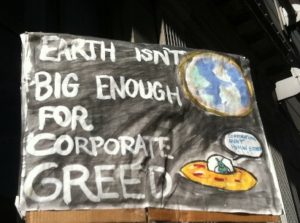Pandemic Musings
Peter Radford

I have been digging around a fair bit lately trying to understand the role of economics in the extent of the inequality being laid bare by the pandemic. But more on that later. A few interesting nuggets worthy of a quick note popped out along the way.
Thomas Phillipon opens chapter one of his recent book [1] this way:
“ The big debates in economics are about development and inequality. As economists, we seek to understand how and why countries develop and how they divide income among their citizens. That is, we are concerned with two fundamental issues. The first is how to make the income pie as large as possible. The second is how to divide that pie.”
Presumably his approach ignores the ugly dismissal of inequality by the likes of economist Lucas who said it was of no enduring interest. Or words to that effect. Distribution is one thing. Inequality is another. Sliding back and forth between the two words elides the moral centre-piece of the discussion: which is, what level of inequality is acceptable?
Economics, once it adopted the marginal method, avoided such a discussion and has, instead, hidden behind the “it’s the way the world works” argument. In other words, it adopted an ideological stance under the guise of scientific discovery. And even today one can easily find economists blithely arguing that people get paid equivalent to their contribution. As if calculating the said contribution is that simple. As if that’s the only factor in determining pay. As if … well, you get the picture.
Economists are fond of playing neat tricks like this.
They stumble on something pretty useful, marginalism being one example, they elevate it to become a universal truth impervious to attack, and then they assume they know something about the world that others just don’t “get”.
They also, conveniently, sanitize their subject from the rather nasty need to ponder or take into account factors like power relations. Not that they ignore such things entirely. Look hard enough and you can find dark references to horrible things like monopoly and monopsony tucked safely away in marginal notes. We are assured in those notes
that these murky issues ought not divert us from applauding the truths of “free” markets. That the real world is more characterized by the exceptions economists shove into those margin notes than by the pristine centre-piece of their thought is left for the assiduous reader to divine.
Which is why most people come away from a study of elementary economics with a thoroughly distorted view of the economic “truths”. When the average student takes a single economics class, the odds are that they emerge thinking that free markets are wonderful and that government intervention stinks. After all, that’s the ideological thrust inherent in most economics and the way it’s most often taught.
If Philippon is correct, and development and inequality are the two big issues, why don’t the elementary books focus on them more? And why do we waste precious time in setting up the perfect and decidedly unreal model of market workings first? Why not relegate that silliness to an appropriate appendix where it belongs? Wouldn’t it be more productive for the average student to engage in discussion of the real world rather than in the fantasy of perfect markets etc?
Anyway, Phillipon has written a good book. He helps the interested reader learn precisely why economics has contributed to the growth of wealth and income inequality. He doesn’t say it quite that way, but by describing the drift away from “free” markets – the subtitle of his book is “How America Gave Up on Free Markets” – he implies that there were, or are, such things and that much of the present awfulness is due to the aforementioned drift. Economic theory gave vital intellectual heft to the drift away from freedom. All in the name of freedom, of course.
Source: Real World Econ Rev blogs https://rwer.wordpress.com/2020/09/09/pandemic-musings-2/
Peter Radford is publisher of The Radford Free Press, worked as an analyst for banks for over 15 years and has degrees from the London School of Economics and Harvard Business School.






























